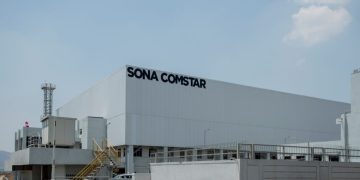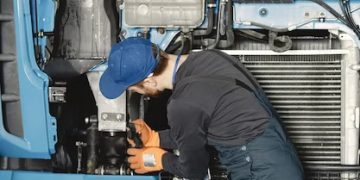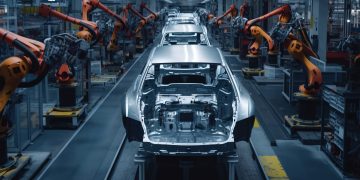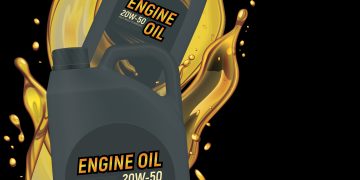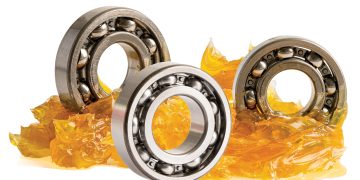Cylinder Deactivation Technology
Cylinder Deactivation, also known as CDA, is a method used in multi-cylinder engines to strategically disable a specific combination of cylinders. This process effectively reduces the engine’s displacement, leading to improved overall engine efficiency and fuel economy.
Two-Stroke and Four-Stroke Engine
Four-Stroke: quieter, heavier, efficient, and environmentally friendly.
Two-Stroke: more torque, powerful, and easier to fix.
Fiat 1.3 Litre Diesel Engine
FCA’s 1.3-litre Multijet diesel engine was dubbed India’s national engine,powering 24 cars and SUVs across brands like Maruti Suzuki, Tata Motors, Fiat, Chevrolet, and Premier.

Engines that Produce Less CO2
Diesel engines emit less CO2 and greenhouse gases than petrol engines because of the internal efficiency of the diesel engine.
DOHC VS SOHC Engines
DOHC engines provide increased intake and exhaust efficiency compared to a SOHC setup. This results in enhanced engine power and improved acceleration. A DOHC engine can generate more horsepower than a SOHC engine of the same size.
Smart Hybrid System
The smart hybrid technology incorporates an Integrated Starter Generator (ISG) and Advanced Dual-battery System, which are combined to boost engine efficiency and ensure optimal performance while minimising the impact on the environment.

Turbocharged and Supercharged Engines
Turbochargers utilise exhaust gas from the vehicle to rotate two fans (turbine and compressor), whereas superchargers are powered directly by the engine through a belt pulley, driving a compressor fan.

Engine TuThe Bning: asic Concept
Engine tuning refers to making adjustments or modifications to the internal combustion engine or Engine Control Unit (ECU) with the goal of achieving optimal performance and enhancing the engine’s power output, fuel efficiency, or durability.

Introduction of Fuel Injectors in Engines
Fuel injection is the method of introducing fuel into internal combustion engines using injectors, primarily to meet emissions and fuel efficiency requirements. The advantages of fuel injectors have led to the decline of carburetors in automotive engines.

Inline-4 vs V-4 Engines on Motorcycles
The advantages of the V4 engine over the inline-four engine are evident. It offers superior power output across a broader range of revolutions per minute and boasts a narrower design, resulting in a more agile and streamlined motorcycle.
Type of Engine Oils
Mineral oil: Mineral oils come in various viscosities and qualities, recommended for drivers with simple engines and regular driving styles.
Synthetic oil: Synthetic oils are chemically engineered, offering more uniform oil molecules with fewer impurities and superior properties to mineral oils.

Semi-synthetic oil: Semi-synthetic oils combine synthetic and mineral oils to provide improved oxidation resistance and excellent low-temperature properties for your engine.
High-mileage oil: High-mileage oils are specially formulated for older vehicles or those with over 100,000 kilometers on the odometer. They reduce oil burn-off and prevent leaks in such engines.
CRDI Engines of Famous Brands
Maruthi: DDiS,
Toyota: D-4D,
Mahindra: CRDe,

Tata: DICOR,
Hyundai: CRDi,
Honda: i-Dtech, Volkswagen: Tdi
Fuel-Cell Electric Vehicles
FCEVs use hydrogen as their power source, boasting higher efficiency than conventional vehicles with no harmful emissions. However, both FCEVs and the hydrogen infrastructure are in the early stages of implementation.

Why Diesel Engines are More Efficient than Petrol Engines
Diesel engines are more efficient than petrol engines due to diesel’s higher combustibility, requiring less fuel to generate the same power, and petrol’s incomplete combustion leading to fuel wastage.
Flex Fuel Engines
FFVs are internal combustion engine vehicles capable of using gasoline or any blend of gasoline and ethanol up to 83%. E85, a flex-fuel blend, contains 51% to 83% ethanol, depending on geography and season.

Fuel Additives and Engine Performance
Fuel additives can boost a standard fuel’s heating value by up to 5%, resulting in improved engine performance with up to 8% higher brake thermal efficiency and a 10% increase in brake mean effective pressure. Moreover, they can reduce specific fuel consumption by up to 9%.
Which Engine is Heavier, Petrol or Diesel
Diesel engines are heavier than similarly sized gasoline engines, necessitating the use of a heavy flywheel to balance power production. This is why petrol engines are preferred for lighter applications like 2-wheelers and portable devices.
V-Twin vs Parallel Twin
V-twin engines are narrower than parallel-twin engines due to their transverse mounting, providing a better fit between the rider’s legs. However, this design leads to increased length and heat generation.

Warming up the Engine, is it Necessary?
Start the engine and allow it to idle while you fasten your seat belt. This ensures proper lubrication of essential engine parts.
Why are Two-Stroke Engines Noisier?
A 2-stroke engine is loud because it does not have a separate lubrication system for the cylinders and crankshaft. Instead, lubrication is provided by mixing oil with the fuel, which results in more noise during combustion. Additionally, 2-stroke engines tend to have fewer moving parts, which can also contribute to their loudness.
Advantage of an Inline-3-Cylinder Engine
Because of its reduced dimensions and fewer components in motion, a 3-cylinder engine can attain enhanced fuel efficiency compared to a 4-cylinder engine. Moreover, a 3-cylinder engine is frequently lighter than its 4-cylinder counterpart, rendering it a suitable option for compact automobiles and vehicles demanding superior fuel economy.

Diesel in Petrol Engines and Vice Versa
Pouring diesel into a petrol car is relatively less severe compared to adding petrol into a diesel vehicle. When you start the engine, the diesel can accumulate on spark plugs and within the fuel system, often resulting in misfires. This can cause issues like smoking, engine stalling, or failure to start altogether. It’s crucial to promptly remove the fuel from the system.
In diesel engines, fuel serves the purpose of lubricating the engine’s internal components, which poses a significant issue in this scenario. The introduction of petrol into the diesel engine causes petrol to infiltrate its internal components following the established mechanism. However, petrol lacks lubricating properties, which ultimately leads to substantial harm to the engine.
Importance of Engine Coolant
Engines, serving as the driving force for automobiles, generate intense heat. In the absence of adequate safeguards, engines can undergo deterioration and even melting, necessitating substantial expenses for replacement.

Automobile coolant, often referred to as antifreeze coolant, serves to prevent engines from overheating. Additionally, coolant offers lubrication to the components it interfaces with, safeguarding against harm to the water pump, head gasket, cylinder, and piston timing.
Early Signs Showing you Need an Engine Rebuild

There are some signs that could mean your engine needs a rebuild. One common sign is using more oil and seeing a lot of white smoke from the exhaust, especially when the engine is cold. This usually happens when the piston rings are worn out.
Advantages of Boxer Twin Engines
Engines that come in pairs are steadier than engines with just one cylinder. Some designs, like flat twins or boxer engines, are even smoother because any unsteady forces they create balance each other out.

Engine Flushing
Engine flushing is performed to remove dirt and buildup that accumulate inside the engine. During this procedure, mechanics introduce special chemicals into the engine oil to break down sludge or carbon deposits that have formed due to old oil. Afterward, they replaced both the old oil and the oil filter.

Engine Noises to Check For
If the engine is in bad shape, you might hear tapping, knocking, or grinding sounds. An unhealthy engine may also produce a whirring noise, especially when its speed goes up, and this noise can worsen. Another sign of trouble is a loud exhaust noise or the engine backfiring.
The Most Efficient 4-Stroke Diesel Engine
The enormous Wärtsilä 31 engine has recently achieved the title of “Most Efficient 4-Stroke Diesel Engine” from Guinness World Records. Roger Holm, Senior Vice President of Engines at Wärtsilä Ship Power, mentioned that this achievement truly sets a new standard for efficiency. Standing over 13 feet in height and available in different engine configurations, this massive diesel engine ranks among the most fuel-efficient options in use today.

It impressively consumes only 165 grams of diesel per kilogram of power, while still meeting current environmental regulations.
The Bugatti Engine
The fastest production car globally boasts the most intricate engine ever installed in such a vehicle. Both the Bugatti Veyron and the Chiron feature this highly complex W-shaped engine. Bugatti’s W-16 engine is an extraordinary 8.0-liter, quad-turbocharged 16-cylinder powerhouse. The enhancements introduced to this engine enable it to generate an incredible 1500 horsepower and a remarkable 1,106 lb-ft of torque. These figures are truly remarkable, and when coupled with a top speed of 305mph, the extraordinary performance becomes more comprehensible.

Over-Revving of Engines
When an engine goes too fast, known as “over-revving,” it can harm the piston and valvetrain. This can happen if a valve remains open for a longer time than usual. This might lead to problems like reduced compression, misfiring, or a collision between a valve and a piston.

Exhaust Change and Engine Performance
The performance of your car can improve by approximately 3%, depending on your car type and the exhaust system or muffler you opt for. This increase can translate into either a slight boost in speed or a reduction in fuel consumption if you maintain your current driving habits.

Effect of Carbon Deposits in Engines
Carbon buildup can disturb the airflow, leading the engine to function differently from the original manufacturer’s specifications. This leads to operational disturbances that create an uneven air-fuel mixture. Even in new vehicles, carbon deposits rapidly accumulate in engines, diminishing their fuel efficiency and performance. This contributes to maintenance problems and higher emissions.

– Gopakumar



































